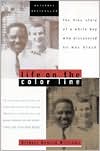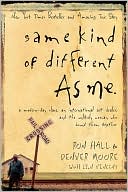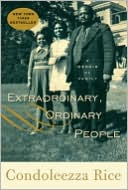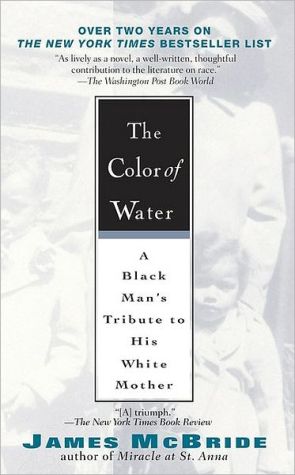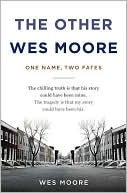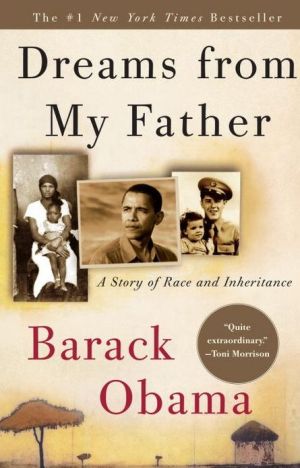Life on the Color Line: The True Story of a White Boy Who Discovered He Was Black
A stunning journey to the heart of the racial dilemma in this country.\ \ \ When the author and his brother were forced to leave Virginia and return to his father's family in Muncie, Indiana, they discovered that their father was a black man who has "passed" in white society. Life on the Color Line tells Williams' story. revealing how his courage and perseverance helped him overcome years of poverty, racism, and intolerance. Film & TV rights optioned by De Passe...
Search in google:
Gregory Howard Williams and his younger brother, Mike, grew up believing they were white and that their darkskinned father was of Italian descent. Then their parents' marriage disintegrated, their mother departed, and their father's business ventures sank into a sea of liquor. Pursued by debt and personal demons, "Tony" Williams took his two boys to his hometown of Muncie, Indiana, where he was known as "Buster," and where there was no escape from the truth he had hidden for so long. The truth was as plain as the color of Buster's family. Gregory and Mike Williams were the sons of a brilliant and charming but troubled black man who fled the burden of race until need drove him back to his roots. Suddenly Gregory and Mike discovered they were black as well, strangers in a segregated world about which they knew nothing, forced to learn the strategies of survival amid the poverty, prejudice, and agonizing absurdities of a time and place where racism flourished. In this extraordinary and powerful memoir, Gregory Howard Williams recounts his remarkable journey along the color line and illuminates the contrasts between the black and white worlds: one of privilege, opportunity, and comfort, the other of deprivation, repression, and struggle. He tells the story of his father, a self-destructive man who often neglected his children, yet had faith in his eldest son's ability to succeed in the face of nearly insurmountable obstacles. Of "Miss Dora," a loving family friend who gave Gregory and his brother the food they ate, the clothes on their backs, and the roof over their heads - all on a salary of just twenty-five dollars per week. Of the hostility and prejudice he encountered all too often, from both blacks and whites, and the surprising moments of encouragement and acceptance he found from each. Williams tells the story, too, of the divergent paths he and his brother eventually took, one defying the odds and the advice of teachers and counselors to become a lawyer, thPublishers WeeklyWilliams, dean of the Ohio State University College of Law, tells the affecting and absorbing story of his most unusual youth. Born to a white mother and a black father who passed for white, Williams was raised as white in Virginia until he was 10, when his mother left. His father brought his two sons back home to Muncie, Ind., in 1954 and sank further into drink. The two boys were eventually taken in by Miss Dora, a poor black widow. Williams's many anecdotes are a mixture of pain, struggle and triumph: learning ``hustles'' from Dad, receiving guidance from a friend's mother, facing racism from teachers and classmates, beginning a clandestine romance with a white girl he eventually married. And while his scarred, grandiloquent father was never reliable, he did instill in young Greg-though not in Greg's brother-sustaining dreams of professional success. Along the way the author decided, despite his appearance, he would proudly claim the black identity that white Muncie wouldn't let him forget. Williams ends his narrative when he reaches college; in the epilogue, he regrets that ``there were too many who were unable to break the mold Muncie cast.'' Photos not seen by PW. Author tour. (Feb.)
Acknowledgments\ Chapter 1 The Open House Cafe\ Chapter 2 The Midas Touch\ Chapter 3 "Captain of My Soul"\ Chapter 4 Rooster\ Chapter 5 Learning How to Be Niggers\ Chapter 6 Bob and Weave\ Chapter 7 "Saved"\ Chapter 8 Hustling\ Chapter 9 Politics and Race\ Chapter 10 The Color Line\ Chapter 11 Accept the Things I Cannot Change\ Chapter 12 Choices\ Chapter 13 Go for It!\ Chapter 14 Big Shoulders\ Chapter 15 Persistence\ Chapter 16 Teammates\ Chapter 17 "Born in the Wilderness and Suckled by a Boar"\ Chapter 18 State of Indiana v. Gregory H. Williams\ Chapter 19 Mike: Like a Moth to Flames\ Chapter 20 Tottering Kingdoms and Crumbling Empires\ Chapter 21 Your Truly Mother
\ Publishers Weekly - Publisher's Weekly\ Williams, dean of the Ohio State University College of Law, tells the affecting and absorbing story of his most unusual youth. Born to a white mother and a black father who passed for white, Williams was raised as white in Virginia until he was 10, when his mother left. His father brought his two sons back home to Muncie, Ind., in 1954 and sank further into drink. The two boys were eventually taken in by Miss Dora, a poor black widow. Williams's many anecdotes are a mixture of pain, struggle and triumph: learning ``hustles'' from Dad, receiving guidance from a friend's mother, facing racism from teachers and classmates, beginning a clandestine romance with a white girl he eventually married. And while his scarred, grandiloquent father was never reliable, he did instill in young Greg-though not in Greg's brother-sustaining dreams of professional success. Along the way the author decided, despite his appearance, he would proudly claim the black identity that white Muncie wouldn't let him forget. Williams ends his narrative when he reaches college; in the epilogue, he regrets that ``there were too many who were unable to break the mold Muncie cast.'' Photos not seen by PW. Author tour. (Feb.)\ \ \ \ \ Library JournalWilliams's coming-of-age years were hard. His father was an alcoholic, and his mother left when Greg was still in grade school, not to be seen for more than a decade. His father soon lost his business, and the rest of the family set out from Virginia for Muncie, Indiana to be near relatives. To Greg's amazement, having lived his short life as white, his fair-skinned father's relatives were black. Facing a lifetime of choosing whether to be black or white and, whatever his decision, opprobrium from both races, Greg opted for black. Today he is dean of a respected law school, a man who in the 1950s Muncie of his youth might have been patronizingly called "a credit to his race." "A credit to the human race" is more like it. Recommended for all libraries. [Previewed in Prepub Alert, LJ 10/15/94.]-Jim Burns, Ottumwa, Ia.\ \
